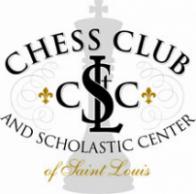Wheelchair access is available in the rear of the STLCC building. Please proceed through the
parking lot to our east and around to our back door. If you need additional assistance, please
contact us at 314-361-2437 .
The STLCC does not discriminate on the basis of race, color, religion, national origin, sex,
sexual orientation, gender identity, age, ancestry, citizenship, genetic information, veteran status,
marital status, pregnancy, disability, and any other category protected by applicable federal,
state, or local laws or regulations in administration of its educational policies, admissions
policies, scholarship and loan programs, events, programs, or activities.
The Saint Louis Chess Club complies with the Internal Revenue Service's guidelines regarding publication of its non-discrimination policy in its brochures, catalogs, advertisements and otherwise making it known to the general community.
Any violation of this policy should be reported to the General Manager, Joy Bray, jbray@saintlouischessclub.org - 314.361.2437, Administrative Director, Tad Middleton, tmiddleton@saintlouischessclub.org -314.361.2437 and/or the HR Manager, Cathy Gallaher, cgallaher@saintlouischessclub.org - 314.332.5582.
The integrity of Saint Louis Chess Club's relationship with minor players is paramount to the Chess Club's educational mission and success. All individuals employed by or working under the direction or authority of the Saint Louis Chess Club are expected and required to maintain appropriate boundaries and relationships with minors and are strictly prohibited from engaging in sexual misconduct, hazing and harassment.
We encourage any victim or other persons with information regarding inappropriate conduct to contact Cathy Gallaher, Saint Louis Chess Club HR Manager at cgallaher@saintlouischessclub.org. You may also make a report confidentially, and if you wish, anonymously, through our ethics reporting hotline managed by Navex at (833)221-3624.



